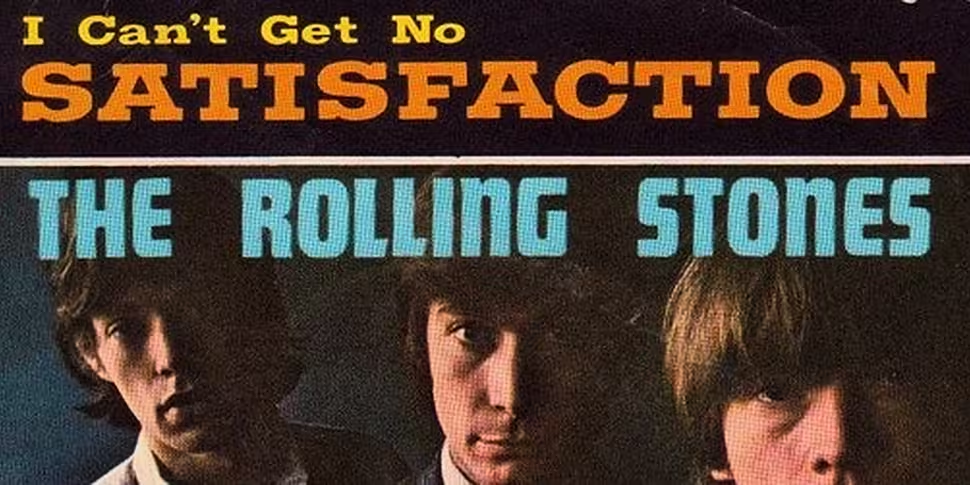It was on the 6th of June, 1965, that rock & roll music changed, with a five notes played in a fuzz-distortion riff.
The intro to (I Can’t Get No) Satisfaction, the Rolling Stones’ smash hit single, is one of the most recognisable in the history of music, flicking a switch in the pop culture consciousness the flipped rock music from its piano-and-saxophone heyday to the strumming possibility of the electric guitar. The song went to number one on both sides of the pond, and things never were the same again.
It was on a spring morning a few months prior, not long before the Stones were set to start their third US tour, that Keith Richards dragged himself, intensely hungover, out of bed, and, as the story goes, noticed his tape cassette player lying on the ground. The tape inside was already at the end of its ribbon, despite him having only put it in the day before. He rewound it to the start, pressed play, and changed rock music forever.
The sound that came out of the tinny Philips speakers was a three-note riff, with some basic chords. Richards even added the first line of the song, a half-asleep rendition of “I can’t get no satisfaction.” He repeated this several times, before the tape went silent – only to pick up the sound of him snoring for the remaining 40 minutes on the spool.
Out of Keith Richards substance-fuelled, somnambulistic conscience came the beginnings of the Rolling Stones’ first US number one, cementing their place in the rock & roll pantheon, with one of the most enduring and covered songs of all time.
Richards can’t take all the credit, regardless of how much Satisfaction is an example of his genius. A month before the song was released, Mick Jagger, after the band had been forced to leave a concert early following riots, added the countercultural lyrics that raised the songs appeal as a sexy alternative to the safe music then in the charts. The song slyly launches a stream of vitriolic criticism at the world and its obsessions with commercialism.
The subversively overt lyrics of Satisfaction were incredibly risqué, with references to sex and menstruation raising eyebrows as the song roared its way up the charts.
And yet, that riff, with its iconic vibrato, wasn’t even meant to be in the final version of the song. Produced with the help of a Gibson ‘Fuzz Box’ guitar pedal, Richards had always intended that his intro be replaced with some brass horns, using the fuzz box to replicate the sound of a saxophone. But the unique energy the pedal brought to the song was a universal hit with everyone who heard it – except Richards, who had to wait until Otis Reading rerecorded it months later to hear what the brass riff would sound like.
Writing in Life, his celebrated autobiography, Richards describes how the riff ran riot: “The fuzz tone had never been heard before anywhere, and that’s the sound that caught everybody’s imagination. As far as I was concerned, that was just the dub. [But] ten days on the road and it’s number one nationally! The record of the summer of ’65 … I learned that lesson – sometimes you can overwork things. Not everything’s designed for your taste and your taste alone.”
(I Can’t Get No) Satisfaction has become arguably the Stones’ most enduring hit, a guaranteed crowd pleaser and still regularly played on the radio. It’s been covered by everyone, from Aretha Franklin to Britney Spears, Jerry Lee Lewis to Vanilla Ice. It’s never been bettered. Although the PJ Harvey and Björk cover at the '94 BRIT Awards might come close.
20 years ago, on the song's 30th anniversary, Mick Jagger, in true Mick Jagger style, explained to Jann Wenner, founder of Rolling Stone magazine, just how (Can't Get No) Satisfaction got it so right.
“It had all the ingredients,” he said. “It has a very catchy title. It has a very catchy guitar riff and a great guitar sound, which was original at that time. And it encapsulated the feeling of the times, which was alienation. A sexual kind of alienation. Alienation’s not quite the right word, but it’s one word that will do.”
Every Thursday on The Right Hook, George is joined live in studio by Bill Hughes, who fills in the musical blindspot in the presenter’s cultural awareness with the riffs, refrains, and robust hits have defined musical history.
You can listen back to this week's podcast below:









